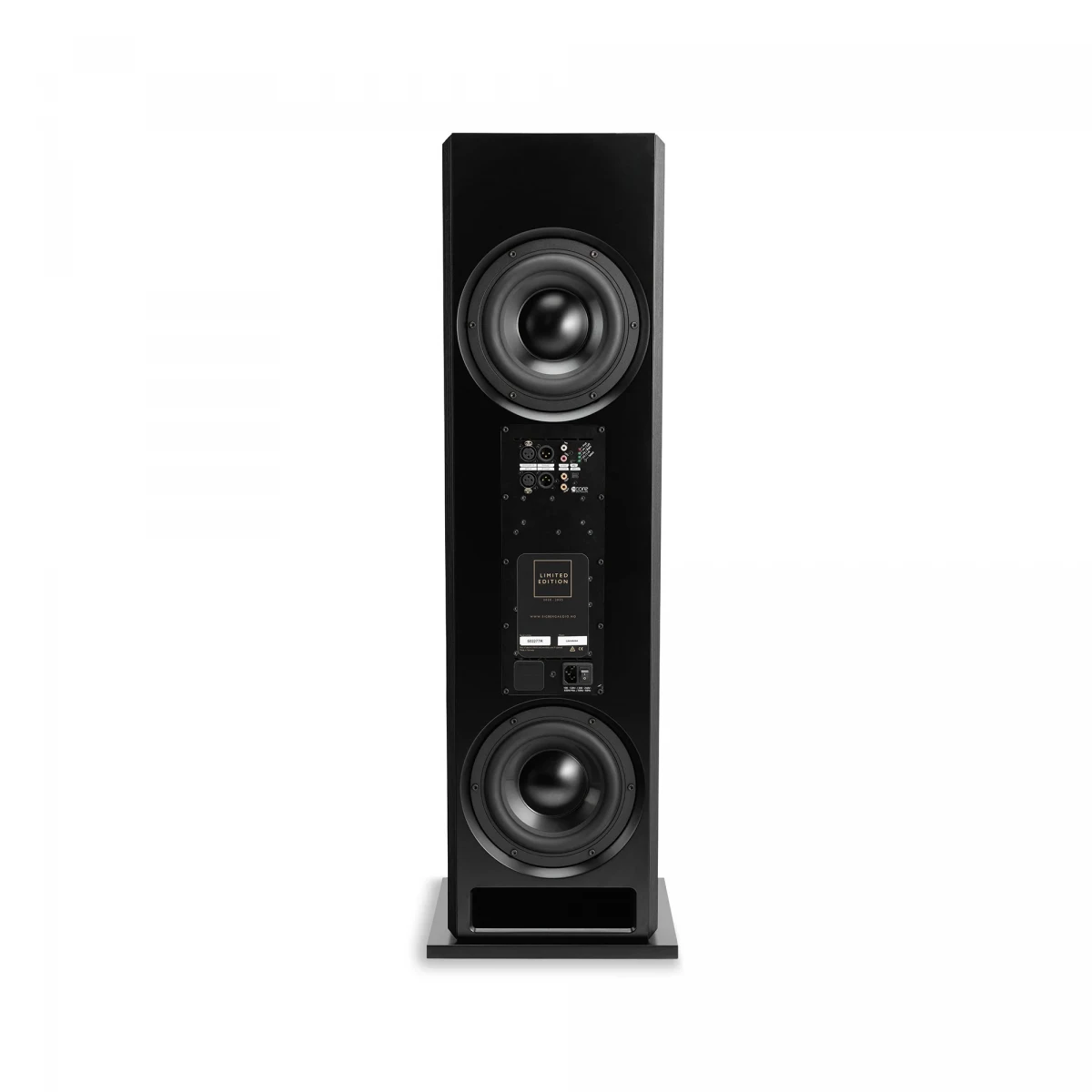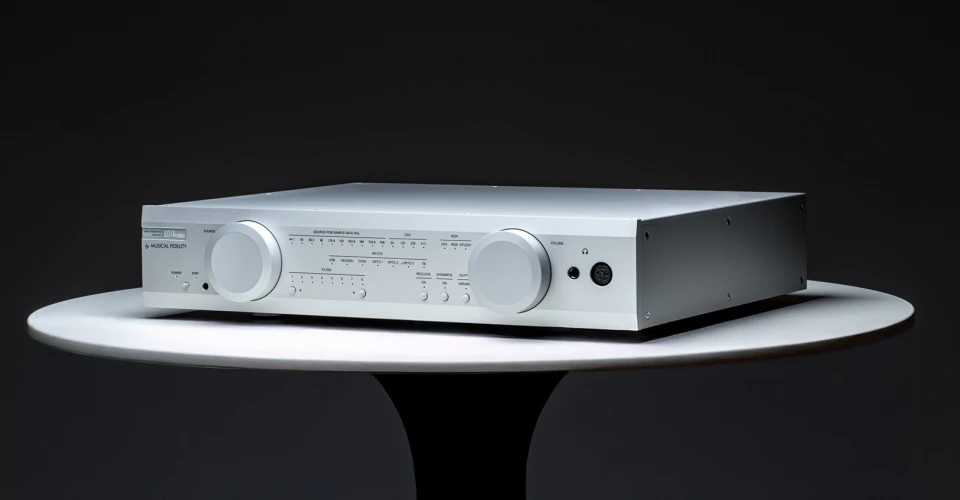
Sigberg Audio Saranna – Active Speakers with a Cardioid Midrange Drivers
15.03.2025 05:41 | ~2 minutes read
The Norwegian company Sigberg Audio has released new active three-way acoustic systems Sigberg Audio Saranna – sales will begin in August 2025. Sigberg Audio Saranna are capable of operating in the range of 20 Hz in-room – which is a very impressive indicator given the dimensions of the speakers. The speakers are also equipped with built-in digital-to-analog converters, so a streamer alone is not enough for a complete system.

The acoustics are made in a three-band configuration with separate amplification of each band. The discreet design hides a front mounted coaxial driver consisting of an 8" compression driver, 2 x rear mounted 8" woofers, and an active 3-channel Hypex nCore class D amplifier with DSP (600 W per speaker).

The coaxial 8" driver with powerful neodymium magnets on the front panel of the speaker, which works almost as a point source, is based on a cardioid design - a ventilated chamber reduces unwanted reflections and ensures that the rhythmic and powerful character of the upper bass and lower midrange frequencies is focused on the listener, which minimizes the blurriness of the sound caused by the acoustic features of the room.

Two 8" woofers mounted on the rear wall of the cabinet and a discrete amplification of 600 W per speaker allow you to customize the sound of the speaker system for a specific listening room with Manual EQ, 9-band parametric equalizer or factory presets (+0dB, +2dB, -2dB Bass tilt). Installation close to the walls of the room will not be a hindrance either.
Sigberg Audio Saranna active loudspeakers are available for pre-order at 249,995 NOK (around 21,000 EUR) per pair. There is a 10% pre-order discount until 1 May 2025.

Specifications
This product is in the Hi-Fi and High End Electronics and Acoustics database
Floorstanding loudspeakers — Sigberg Audio Saranna
Model name
Saranna
Frequency Response low +/- 3dB (Hz)
25 (20 in-room)
Frequency Response high +/- 3dB (Hz)
20000
Sensitivity (dB at 1 W/1m)
N/A
Impedance (Ohms)
N/A
Power amplifier requirements (W)
N/A
Has internal amplification
Yes
Internal amplification power (W)
600
Size (sm)
28.4 x 110 x 34
Weight (kg)
44
Official link

More content

Rega Brio Mk7 – Now Not Only with a Phonostage, But Also with a DAC
Rega has introduced the seventh generation of the Brio series integrated amplifier - Rega Brio Mk7. The amp, like its predecessors, is housed in a compact case and offers a power of 2 x 50 W at 8 Ohm load or 2 x 73 W at 6 Ohm. "On board" along with a headphone amplifier (with a 3.5 mm minijack post) and a phono preamplifier for working with both moving magnet (MM) and moving coil (MC) pickup cartridges, a digital-to-analog converter module has also appeared.

Audio-Technica Releases “Star Wars” Headphones
Audio-Technica has introduced a limited edition of the ATH-CKS50TW2 TWS headphones, designed based on the Star Wars universe. Users are offered stylized versions in the style of the droid R2-D2, the characters Grogu and Mando from the Mandalorian series, and Darth Vader. The technical specifications remain unchanged, but the owners of the headphones now have the opportunity to customize alerts that play unique sounds from Star Wars corresponding to a particular character.

Pearl Acoustics 170 SE – an Single-Ended Amplifier on PSVANE KT150 tubes
The tube stereo power amplifier Pearl Acoustics 170 SE should go on sale only at the end of 2025 – but the veil of secrecy over the device has already been lifted. We are waiting for a dual mono, single ended design power amp with 0 dB global feedback. The device is based on the inexpensive PSVANE "Horizon" KT150 tubes – which delivers excellent holography, as well as good bass and detail without a significant loss in output power.

Nagra Compact Phono – a New Phonostage From a Legendary Brand
The Swiss company Nagra has introduced a new phono preamplifier, the Nagra Compact Phono, offered for a relatively modest price of $4,950 by the company’s standards. The model, housed in a miniature aluminum vibration-controlled case, offers the highest performance and uses circuitry with the shortest signal path to achieve ideal MC correction.

Musical Fidelity M8x DAC – Both DAC and Headphone Amplifier
Musical Fidelity has developed a new digital-to-analog converter with headphone amplifier Musical Fidelity M8x DAC. In its development, the company relied on its proprietary approaches that have been developed over the years – such as the use of Class A output stages, the absence of an information display to reduce electromagnetic interference (indication is displayed using LEDs), as well as the avoidance of wireless Wi-Fi and Bluetooth modules.


